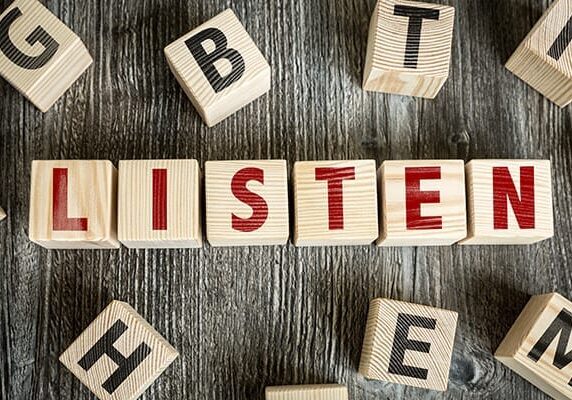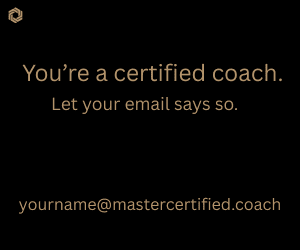You’ll listen better and be listened to if you practice these tips:
- Let others tell their own stories first. By letting them speak first, you save time. When their interests are revealed you can tailor your discussion to their particular needs, goals and objectives. Stop wasting time volleying sentences that take much longer to really hear someone. You’ll get your turn.
- It is impossible to listen and talk at the same time. Not interrupting allows the other person to keep their train of thought. Why not wait until the speaker’s point is made? Then, you will have your chance.
- Listen for the main ideas. Specific facts are only important as they pertain to the main theme. Relate stated facts to the speaker. Ask yourself: “What is the speaker getting at?” Or “What is his point?” Then, get feedback. If you guess correctly, your understanding is enhanced and your attention is increased. If you are incorrect, you learn from your mistake.
- Fight off distractions. Train yourself to listen carefully to your customer’s words, despite such external distractions as a ringing telephone, passersby or other office noise. Focus your attention on the words, ideas, feelings and underlying intent. Improve your power of concentration so that you can block out external and internal distractions and attend totally to the speaker.
- React to the message, not the person. Don’t allow your mental impression of the speaker to influence your interpretation of their message. Good thoughts, concepts and arguments can come from some of your least favorite people.
- Use feedback. Constantly try to check your understanding of what you hear. Do not only hear what you want to hear.
- Try not to be critical, either mentally or verbally, of the other person’s point of view. Allow the speaker plenty of time to fully finish their train of thought. You might find that what you were initially going to disagree with wasn’t such a bad idea after all. Keep an open mind.
- Listen attentively. Face the speaker with uncrossed arms and legs. Lean slightly forward. Establish eye contact. Use affirmative head nods and appropriate facial expressions when called for, but do not overdo it.
- Create a positive listening environment. Shoot for a private atmosphere away from sources of distraction.
- Ask questions. Ask open‑ended questions to allow the speaker to express his feelings and thoughts. A simple yes or no is not enough. “How can I help you?” “Where do we go from here?” Clarifying questions seek information by restating the speaker’s remarks. The effective use of questions also allows you to contribute to the conversation.
Disclaimer
The views and opinions expressed in guest posts featured on this blog are those of the author and do not necessarily reflect the opinions and views of the International Coach Federation (ICF). The publication of a guest post on the ICF Blog does not equate to an ICF endorsement or guarantee of the products or services provided by the author.
Additionally, for the purpose of full disclosure and as a disclaimer of liability, this content was possibly generated using the assistance of an AI program. Its contents, either in whole or in part, have been reviewed and revised by a human. Nevertheless, the reader/user is responsible for verifying the information presented and should not rely upon this article or post as providing any specific professional advice or counsel. Its contents are provided “as is,” and ICF makes no representations or warranties as to its accuracy or completeness and to the fullest extent permitted by applicable law specifically disclaims any and all liability for any damages or injuries resulting from use of or reliance thereupon.
Authors
Post Type
Blog
Audience Type
Coach Educators, Experienced Coaches, External Coaches, ICF Chapter Leaders, Internal Coaches, New Coaches, Professional Coaches, Team and Group Coaches
Topic
Coaching Toolbox, Discover - Your Coaching Career
Related Posts
Grace Under Fire: Building Stress Resilience for Coaches and High Achievers
There’s a unique kind of pressure that lives at the intersection of…
Beyond the Session: The Coach-Adjacent Skills That Matter
Unlike many coaches, I didn’t come to this from another career. Coaching…
The Role of Cultural Humility in Coaching
Remember the last potluck you attended? Everyone brought a dish, a food representing their…







